How to Fight a Confession of Judgement
A is a clause in loan agreements that allows lenders to take legal action if borrowers default on their loans. By signing this document, you are consenting for your assets and bank account to be garnished or seized as soon as possible after notification from the court system.
However, just because a debtor has signed a confession of judgment does not mean that they have no recourse. If the debtor feels that the confession of judgment was obtained through fraud, duress, or mistake, they may be able to fight it in court. Additionally, even if the confession of judgment is valid, the debtor may still be able to negotiate a payment plan or settlement with the creditor.
In this article, we will describe further in detail what a is and how you can fight this agreement. DoNotPay offers a more efficient process to deal with a confession of judgment, which will also be covered.
How Does a Confession of Judgement Work?
A is included in a loan agreement. By agreeing to the terms, you can seriously limit your rights should you default on a loan. With it, you are giving permission for the lender to take action to obtain payment in several ways.
The manner in which a confession of judgment works can vary from one state to another. However, in general, the following apply:
- It is only binding in the state where you took out the loan.
- The lender can enforce the confession of judgment in court without informing you first. When a lender files for relief from judgment, you may not know they've taken action until your bank account starts getting drained of funds.
- A complaint or other legal process is not required to be filed first by the lender.
- By signing a confession of judgment, you accept liability for the balance of the loan plus outstanding interest and penalties.
- If the court approves the confession of judgment, the lender can move forward with obtaining the debt by garnishing your bank account, wages, and even seizing assets that are subject to a lien.
What Loans Traditionally Incorporate a Confession of Judgement?
Where legal, the following types of loans may include a confession of judgment in the contract:
- Merchant cash advances
- Short-term loans
- Short-term lines of credit
- Credit cards
The loans are better options for startups and borrowers with lower credit scores. Lenders limit their liability with high interest rates along with the confession of judgment clause. Although your loan may not mention one at first, the lender may ask you to sign a confession of judgment later if you are delinquent on payments and must negotiate a new plan.
Should You Take a Loan That Includes a Confession of Judgement?
You deserve every right to be cautious, especially when signing legally-binding agreements. If you are unsure about accepting the terms that indicate a confession of judgment, it's best to take the following precautions before you sign:
- Find out which state's laws regulate the loan agreement, and what the laws are in that state for confessions of judgment.
- Have your loan agreement reviewed by a lawyer.
- Try offering more collateral or accepting a higher interest rate instead of a confession of judgment clause.
Can You Fight a Confession of Judgement?
Fighting a confession of judgment means eliminating or vacating it. However, this motion isn't usually filed unless there is a valid reason. These could be any of the following:
- The party can show that they did not fully understand what they were agreeing to when they filed the confession.
- The party can show that there was fraud or deceit on the part of the other party in getting them to sign the confession.
- If the party can show that there is other sufficient evidence to warrant setting aside the default judgment.
The court will then review the motion and decide whether to grant it. If the court grants the motion, the confession of judgment will be set aside and the case will proceed as if the confession had never been filed.
If you are considering filing a motion to vacate a confession of judgment, you should first speak with an experienced attorney. An attorney can review your case and help you determine whether you have grounds to file the motion. They can also assist you in drafting and filing the motion, and represent you in court if necessary.
How to Remove a Confession of Judgement From Your Credit History by Yourself
A confession of judgment can have a negative impact on your credit history. It indicates that the lender is having problems obtaining payment from you, severely affecting your chances of obtaining future loans. Other than having the judgement vacated for the above reasons, credit bureaus will only remove it from your history under the following conditions:
- The judgment was triggered by identity theft
- There is an error in the reporting of the judgment
- The debt was paid
- The period has expired
- The debt belongs to someone else
- The lender is no longer in business
If it is getting harder negotiating with your lender or creditor, it might be best to review the Fair Credit Reporting Act or FCRA. In a gist, the FCRA basically protects debtors like you from abuse and harassment from creditors. It is implemented by the Federal Trade Commission or FTC, state attorneys general, and Consumer Financial Protection Bureau.
To reach out to the CFPB, you can check the contact details below:
| Company | Consumer Financial Protection Bureau |
| Mailing Address | Consumer Financial Protection Bureau
PO Box 27170 Washington, DC 20038 |
| Phone Number | (855) 411-2372 |
| Email or Contact Form | Ask CFPB |
How DoNotPay Can Help You Remove a Confession of Judgement From Your Credit History
If you want to clean up your credit report but don't know where to start, DoNotPay has you covered in 3 easy steps:
- Search Clean Credit Report on DoNotPay.
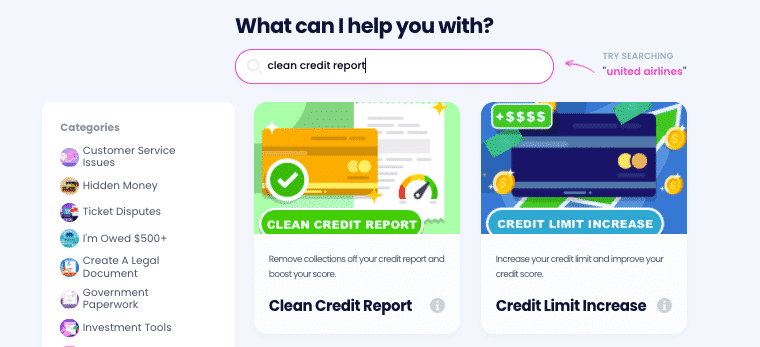
- Prepare a recent copy of your credit report that you can use as reference.
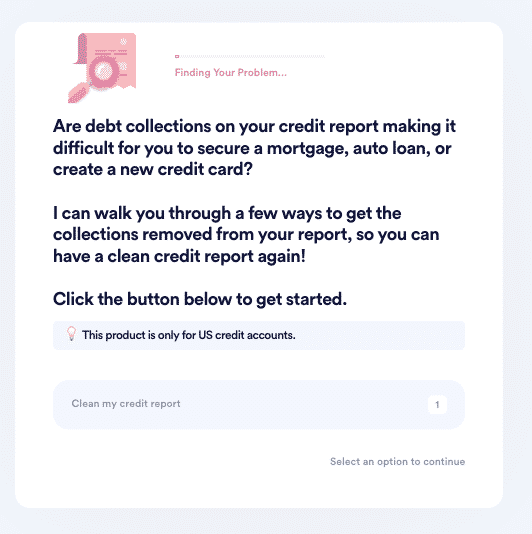
- Let us guide you through the 4 potential options:
- If you've already paid off your debt, we'll help you file a Goodwill Removal Request to get it removed.
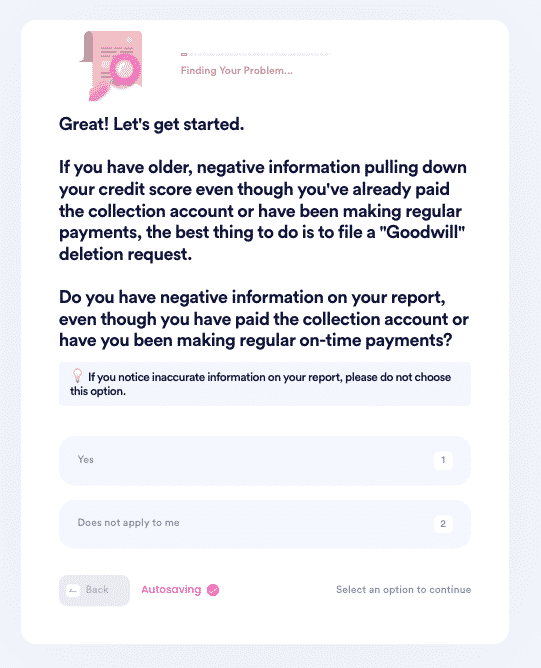
- If you notice any errors in your report (we have a list of common errors you can use!), we'll help you file a credit dispute to the creditor or major credit bureaus.
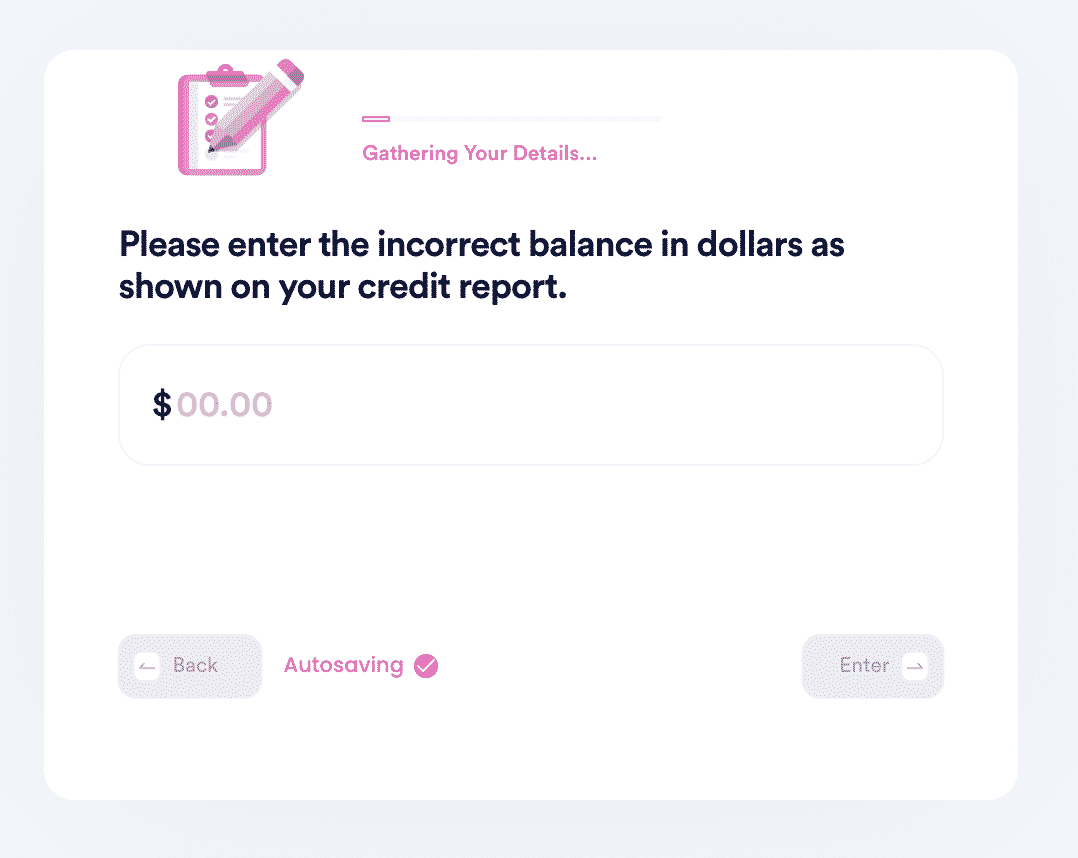
- If there are no errors, we'll check if you're still eligible to file a debt validation request. If they can't validate your debt, they're required to remove it from your report, and they can't collect it!
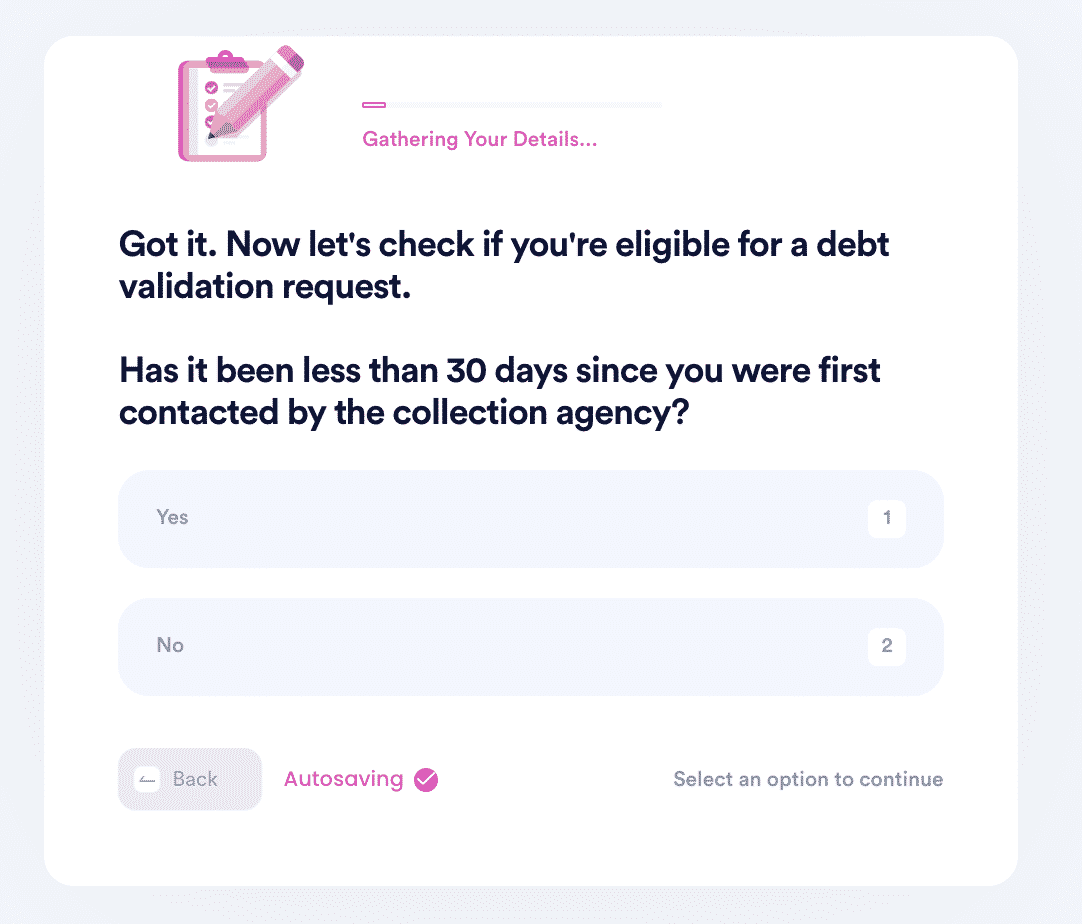
- Lastly, if none of the above options work, we'll help you file a pay-to-delete negotiation letter. You can customise the amount you are willing to pay in exchange for getting the item removed.
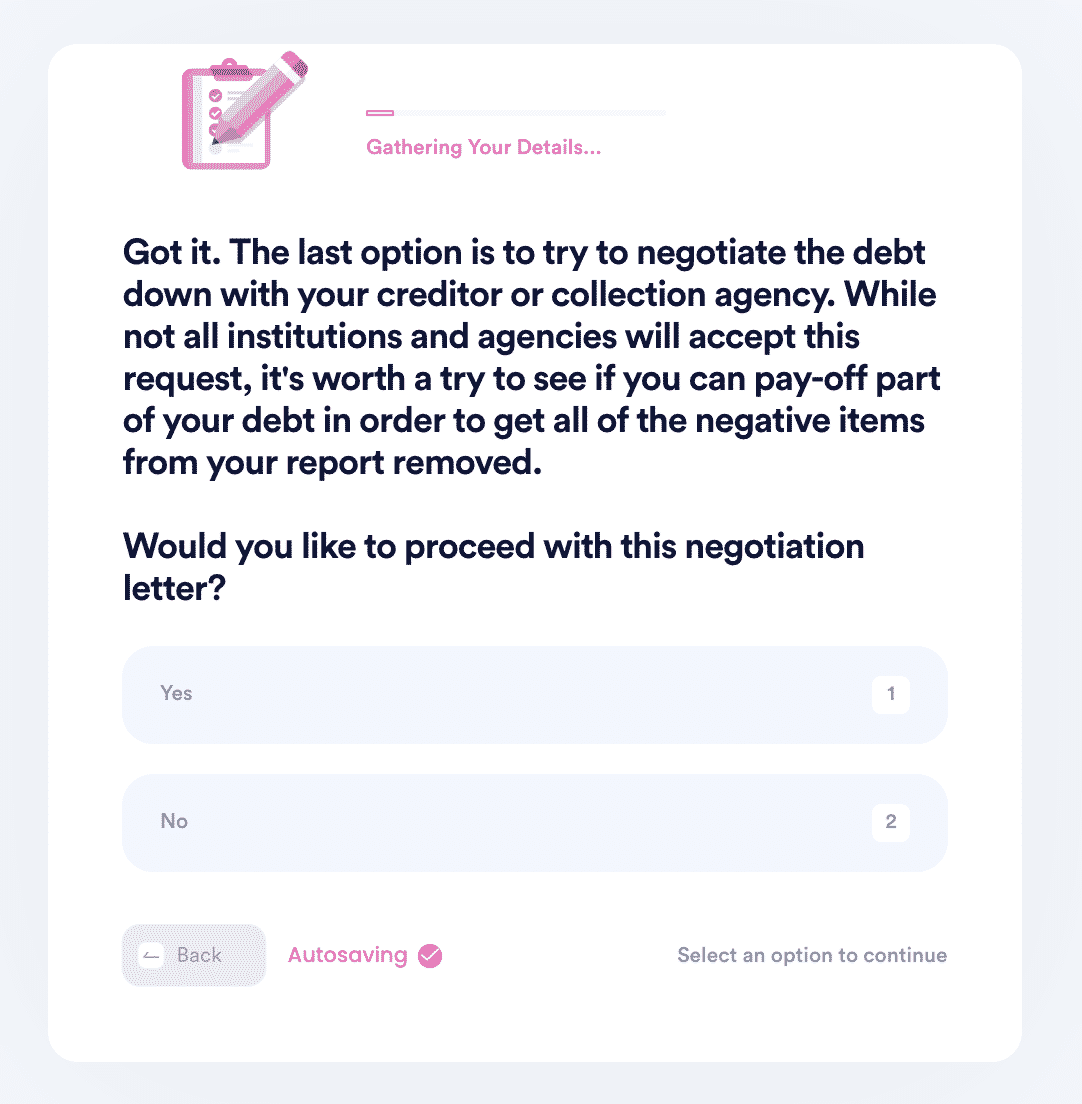
Now that you’ve solved this issue, let’s see how else DoNotPay can help.
Clean Your Credit Report with DoNotPay
Aside from helping you fight a confession of judgment, DoNotPay can also assist you with other credit-related issues. Below are samples of inquiries that we can answer for you:
- How to improve your credit score
- Disputing your credit report
- How to obtain a debt validation letter
- How to remove collections from your credit report
- How to write a credit dispute letter
- How to remove late payments from your credit report
- How to fix your credit score
- How to remove inquiries from your credit report
DoNotPay Fixes More than Credit Scores
When you’re done dealing with your credit report issues, you might want to check out other DoNotPay products that could help make your life easier. Take advantage of DoNotPay’s expertise in:
- Filing warranty claims
- Finding unclaimed money
- Appealing banned accounts
- Solving credit card issues
- Cancelling any service or subscription
- Getting city repairs done
- Using a fake phone number
- Help with bills
- How to get chargebacks and refunds
DoNotPay has one of the most extensive arrays of solutions for any legal issues that you may have. The website is convenient and easy to use, making it quicker than ever to resolve many issues without hassle or confusion. Sign up or download the app today and be ready to accomplish more with DoNotPay.
 By
By